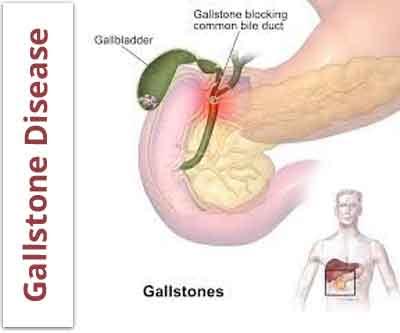- Home
- Editorial
- News
- Practice Guidelines
- Anesthesiology Guidelines
- Cancer Guidelines
- Cardiac Sciences Guidelines
- Critical Care Guidelines
- Dentistry Guidelines
- Dermatology Guidelines
- Diabetes and Endo Guidelines
- Diagnostics Guidelines
- ENT Guidelines
- Featured Practice Guidelines
- Gastroenterology Guidelines
- Geriatrics Guidelines
- Medicine Guidelines
- Nephrology Guidelines
- Neurosciences Guidelines
- Obs and Gynae Guidelines
- Ophthalmology Guidelines
- Orthopaedics Guidelines
- Paediatrics Guidelines
- Psychiatry Guidelines
- Pulmonology Guidelines
- Radiology Guidelines
- Surgery Guidelines
- Urology Guidelines
Gallstone disease may increase heart disease risk : AHA Study

Study Highlights: A history of gallstone disease was linked to a 23 percent increased risk of developing coronary heart disease. Preventing gallstone disease may also benefit heart health, say researchers.
Study Highlights
- A history of gallstone disease was linked to a 23 percent increased risk of developing coronary heart disease.
- Preventing gallstone disease may also benefit heart health, say researchers.
Dallas : A history of gallstone disease may increase your risk of coronary heart disease, according to new research in the American Heart Association’s journal Arteriosclerosis, Thrombosis and Vascular Biology.
Gallstone disease is one of the most common and costly gastrointestinal disorders in the United States. Gallstone disease and coronary heart disease have similar risk factors, including diabetes, obesity, high cholesterol, high blood pressure and poor diet.
In a meta-analysis of seven studies consisting of a total of 842,553 participants and 51,123 cases of coronary heart disease, researchers analyzed the relationship between history of gallstones and the development of coronary heart disease. They found that a history of gallstone disease was linked with a 23 percent increased risk of developing coronary heart disease.
“Our results suggest that patients with gallstone disease should be monitored closely based on a careful assessment of both gallstone and heart disease risk factors,” said Lu Qi, M.D., Ph.D., study senior author and professor of epidemiology at Tulane University in New Orleans, Louisiana. “Preventing gallstone disease may also benefit heart health.”
In a separate analysis of 269,142 participants from three different studies, the researchers found coronary heart disease occurred more often with a history of gallstone disease because of the shared risk factors. Moreover, the increased risk was similar between women and men.
Interestingly, in the three studies, participants with a history of gallstone disease who were otherwise healthy were not obese, diabetic or had high blood pressure had a greater risk of coronary heart disease than participants that had these conditions.
Previous studies have reported an increased risk of cardiovascular disease with history of gallstone disease, but these studies lacked U.S. populations, were conducted over short periods, did not confirm the cases of gallstones or did not account for significant risk factors for gallstone diseases such as lifestyle and diet, researchers said.
The researchers did not identify why gallstone disease and coronary heart disease were linked in this study, but one theory is that gallstones may affect bile acid secretion, which has been related to cardiovascular risk factors. In addition, gut microbiota has been related to cardiovascular disease. “Patients with gallstones also have abnormal abundance and metabolism in their gut microbiota”, Qi said.
Understanding the factors that link gallstones and coronary heart disease and clinical trials to assess the effects of the factors on cardiovascular health are essential for applying the research findings to clinical practice, Qi said.
Co-authors are Yan Zheng, M.D., Ph.D.; Min Xu, M.D., Ph.D.; Yanping Li, M.D., Ph.D.; Adela Hruby, Ph.D., MPH; Eric B. Rimm, Sc.D.; Frank B. Hu, M.D., Ph.D.; Janine Wirth, Ph.D.; Christine M. Albert, M.D., MPH; Kathryn M. Rexrode, M.D., MPH and JoAnn E. Manson, M.D., Dr.PH. Author disclosures are on the manuscript.
The National Heart, Lung and Blood Institute, the National Diabetes and Digestive and Kidney Diseases, the Boston Obesity Nutrition Research Center, and the United States Israel Binational Science Foundation supported this study.

Disclaimer: This site is primarily intended for healthcare professionals. Any content/information on this website does not replace the advice of medical and/or health professionals and should not be construed as medical/diagnostic advice/endorsement or prescription. Use of this site is subject to our terms of use, privacy policy, advertisement policy. © 2020 Minerva Medical Treatment Pvt Ltd